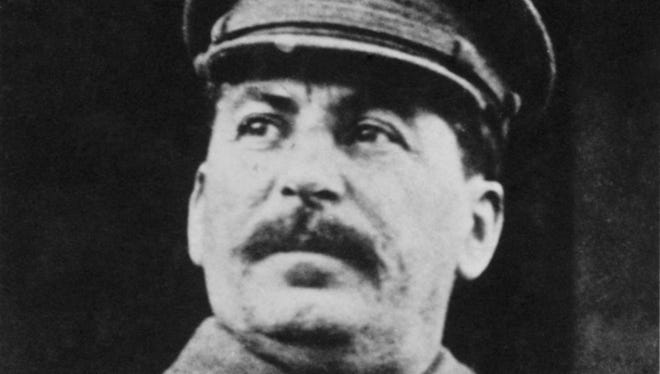Remember the Victims of Communism

Seventy-five years ago this week, Nazi Germany and the Soviet Union signed a pact of non-aggression and cooperation. The sinister 1939 pact (along with its secret provisions) between Hitler and Stalin and negotiated by Soviet foreign minister Vyacheslav Molotov and Nazi German foreign minister Joachim von Ribbentrop, would conquer and divide Europe, half Nazi and half Communist. Fascism and Communism became aligned in the early stages of a conflict that would consume millions of lives in the years that followed.
Within days of signing the Molotov-Ribbentrop Pact, Hitler’s armies invaded Poland, and over the next few months, Stalin soon invaded Finland, Estonia, Latvia, and Lithuania. For nearly two years, the Nazi SS and Soviet NKVD worked together. There were instances when Soviet secret police rounded up German Jews who had escaped to the Soviet Union and handed them over to the SS. Both Nazi Germany and the Soviet Union committed war crimes on a massive scale and systematically murdered millions of civilians.
In 1941, Hitler broke the pact and attacked the Soviet Union. When the war ended, the Third Reich was finished, but the Soviet Empire lived on.
In the 1980s — when most people expected that the Soviet Union would never end — refugees from Lithuania, Estonia, Latvia, Poland and other Captive Nations began organizing protests on August 23rd, the date of the Molotov-Ribbentrop Pact, calling it “Black Ribbon Day.” They wished to remind the West that Joseph Stalin was not a friend of peace in World War II, but helped to cause the war, directly aided the Nazis, and then seized half of Europe in order to impose Soviet Communism on entire populations. Most urgently, these protesters, who had themselves escaped from behind the Iron Curtain, wished to remind the West that the Soviet Union still dominated the countries of Central and Eastern Europe. These protests occurred in tandem with dissident movements behind the Iron Curtain.
On August 23, 1989, in the midst of revolutions throughout the Soviet world, approximately two million people joined hands in a human chain over 370 miles long stretching across the Baltic states of Estonia, Latvia, and Lithuania in order to protest their communist governments. The event, known as the Baltic Way, was a powerful symbol of popular resistance to communism. Moments like these precipitated the final collapse of the Soviet Union. A little over two years later, on September 6, 1991, the Baltic states became independent. On December 25, 1991, the Soviet Union ceased to exist.
Alas, over the past two decades the crimes of Soviet communism and the role of Stalin in World War II have been largely forgotten. Today we see the rehabilitation of Stalin’s reputation within the West as that of leader of an Allied Power that helped the West defeat Hitler, with little attention paid to Stalin’s atrocities committed before, during and after WWII. Within Russia itself, Stalin is increasingly viewed as a national hero, an opinion that has grown along with the size of Russia’s Communist Party in the Duma over the last decade.
Black Ribbon Day is important because it lays bare both the ideological similarities of national and international socialism, as well as the practical likenesses of Nazi Germany and the Soviet Union. Black Ribbon Day is a time to remember that ideas have consequences and that totalitarian ideas have deadly ones. According to Myroslav Marynovych, winner of the 2014 Truman Reagan Medal of Freedom and a Ukrainian human rights advocate who spent years in a Soviet gulag, “the moral equation of Nazism and communism is, from my point of view, absolutely justified.”
On May 22 of this year, the U.S. House of Representatives passed H.R. 4435, which would officially commemorate August 23rd as Black Ribbon Day. The legislation is now headed to the U.S. Senate, where if passed, the United States would join more than a dozen countries in commemorating the victims of totalitarianism in Europe.
On this 75th anniversary of the Molotov-Ribbentrop Pact, we recognize the morally reprehensible nature of the totalitarian ideas of Nazism and Stalinism, of fascism and communism. We also recall the historical fact that regimes dedicated to these deadly ideologies worked together to start World War II, and aided each other in murdering millions of innocent men, women, and children. We remember those victims on this Black Ribbon Day.
We honor those who in 1989 overcame fear and confronted Soviet power to shatter the lie that communist rule could not be overcome. In the spirit of 1989, we encourage those Russians who are today fighting for basic liberties and the rule of law and against the whitewashing of Soviet crimes. And we hope for the freedom and dignity of those living today under totalitarian regimes.
Žygimantas Pavilionis is ambassador of the Republic of Lithuania. Marion Smith is executive director of the Victims of Communism Memorial Foundation.

